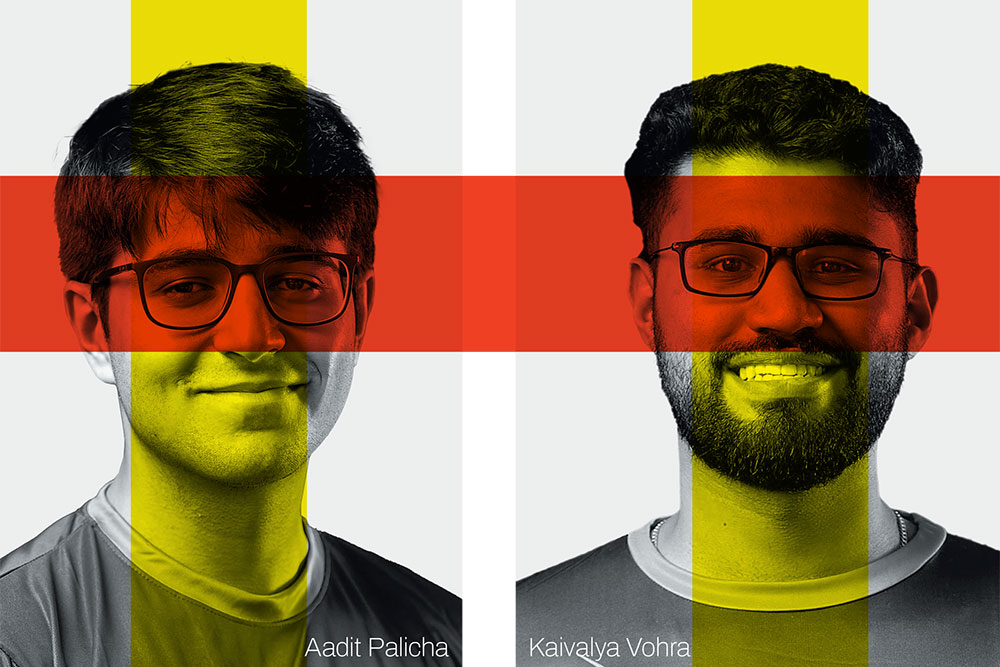Mumbai’s Isha Lodha calls Zepto a lifesaver. “I was so used to visiting my local fruit and vegetable vendor in Andheri’s Lokhandwala market for daily supplies that the series of Covid-induced lockdowns in 2020 and 2021 came as a rude shock,” she recalls. That was when she learnt about the quick commerce app that promised delivery of grocery and other items within 10 minutes. Today, Zepto has become a way of life in her household.
According to a market report by Bobble AI Data Intelligence Division, Zepto witnessed a 946% user growth between December 2021 and March 2022. On the other hand, bigger brands like Reliance-owned Dunzo and Tata Group’s Big Basket clocked 94% and 58% growth, respectively.
Starting Young
Zepto was founded in 2021 by two 19-year-old Stanford dropouts Aadit Palicha and Kaivalya Vohra. Originally from Mumbai, Palicha and Vohra are childhood friends. Their parents moved to Dubai when the boys were young.
Vohra, also the chief technology officer of Zepto, started programming when he was around 11, aiming to work at a leading tech company in Silicon Valley. Palicha designed GoPool as a student project that would help parents find and schedule carpools for their school-going children. While he had earlier considered a career in law and then professional gaming, he found his calling in entrepreneurship when he stumbled on YCombinator Startup School sessions.
Reshaping the Grocery Game
In June 2020, when the pandemic struck and businesses were shuttered, the duo launched KiranaKart in Mumbai as a hyperlocal delivery app. However, within 10 months, they had to close the company. They then launched Zepto in April 2021.
It is undeniable that the pandemic significantly contributed to Zepto’s valuation surge, as the increased reliance on digital platforms boosted demand for its services. Says Shreedha Singh, CEO and co-founder of The Ayurveda Co. (T.A.C.), “With Zepto, T.A.C. products are not just delivered; they are brought to life in the hands of our customers within minutes. Looking forward, the quick commerce sector is poised to expand exponentially, and for brands like T.A.C, this translates into unprecedented opportunities to connect with our consumers more dynamically and intimately than ever before.” Singh claims that the partnership of T.A.C. with Zepto has been a game-changer, especially in metros and Tier-1 cities. “With Zepto’s lightning-fast delivery, we are seeing remarkable growth in customer engagement and satisfaction,” she adds.
Zepto’s ability to hold its own in the face of competition from large players like Zomato-backed Blinkit, Swiggy Instamart and Dunzo is one of the key reasons why the e-grocery platform was successful in raising $200 million in a Series E round in August 2023. With a $1.4 billion valuation, Zepto became the first unicorn of the year despite the funding winter.
The youngsters debuted in the 2022 IIFL Wealth Hurun India Rich List—Palicha at the 950th spot with an estimated net worth of Rs 1,200 crore, and Vohra at the 1,036th spot, with a net worth of Rs 1,000 crore. This also makes them the youngest start-up founders in the Hurun India Future Unicorn Index 2022.
Ankit Kedia, founder and lead investor of investment firm Capital A, notes that sustaining this momentum in a competitive market will depend on Zepto’s ability to consistently deliver value, adapt to evolving market dynamics and differentiate itself from rivals. “At some level, Zepto seems to have achieved product-market fit but revolutionary ideas take time; sustained success requires continual innovation and market responsiveness,” he remarks.
Kedia notes that although higher convenience at a higher cost may have uncertain rewards, the sector’s future success relies on adapting to evolving consumer expectations. Building scale over the next few years necessitates substantial PE/VC capital infusion, underlining the importance of strategic financial backing to drive growth and navigate the competitive landscape in this evolving market.
Palicha and Vohra are planning to take the company public by 2025, and they intend to use the recently raised capital to invest in its growth by expanding its market presence. Their aim is to achieve EBITDA positivity within 15 months.
The Growth Challenge
In FY23, Zepto’s revenue grew more than 14 times to Rs 2,024 crore, compared to Rs 142.4 crore the previous year. However, its loss in FY23 was Rs 1,272 crore, over three times larger than the Rs 390.4 crore in the previous year, the company shared. Total expenses in FY23 reached Rs 3,350 crore, rising over six times from the Rs 532.7 crore spent in the previous year.
Industry experts are unfazed by these numbers. “While the current bleed rate is a concern, the monetisable model at scale and the potential of the supply chain distribution as a flywheel for various services suggest avenues for financial sustenance,” Kedia explains.
Ultimately, the company’s strategic vision and execution will play a pivotal role in navigating the competitive market and determining its funding needs in the coming years.











